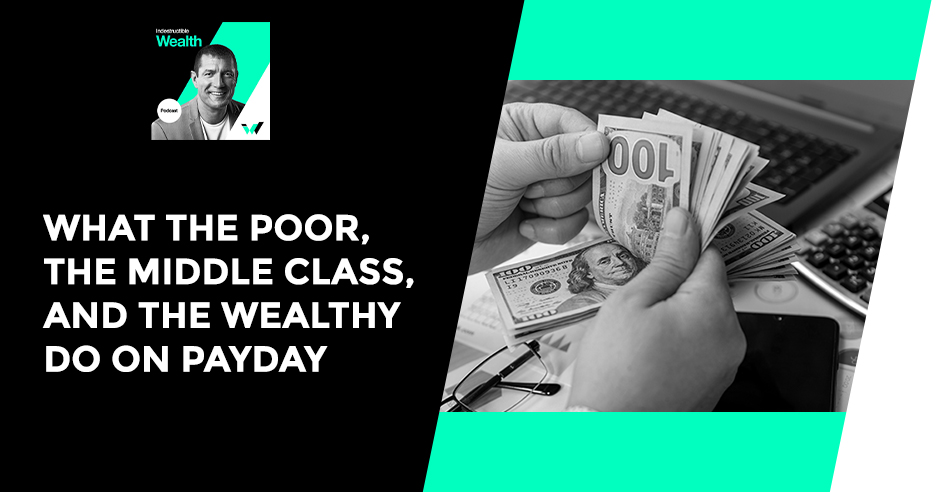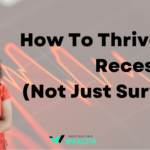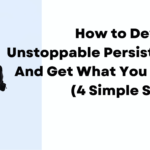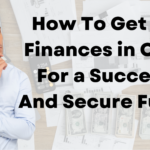
… And how your behavior on payday can make all the difference when it comes to building wealth.
Bonus! Join me on Friday, November 5th, for the Global Wealth Leaders Summit from 10 am to 6 pm. It’s free to register, and all registered attendees will also get free access to the recorded summit after the event, so you can revisit aspects of the summit that interest you most, on your own time. 😎
Visit www.globalwealthleaders2021.com/jack to register.
—
Table of Contents
Listen to the podcast here
What The Poor, The Middle Class, And The Wealthy Do On Payday
Before I dive into the content, I wanted to invite you to a special event. It’s called The Global Leaders Wealth Summit. I was invited to be a guest speaker. I’m super excited to be a part of this. One of my passions is speaking to groups, inspiring and motivating. I love doing this show. I have a segment and there are ten other incredible speakers who all have gifts when it comes to building wealth and strategies for entrepreneurship, creating passive income and real estate investing. You are in for a treat. This is a free event.
You can register for this event. This is going to be Friday, November 5, 2021, from 10:00 AM to 6:00 PM. The link is GlobalWealthLeaders2021.com/Jack. When you go to that website, you can register. It’s a free event, but don’t mistake free for a low value. In my opinion, that’s oftentimes the problem when events are free, we think, “If it’s free, then it’s not worth that much.” Don’t make that mistake. I know a lot of us have been on Zoom so much. It is like, “It sounds great, but not another Zoom all-day type of event.” You can go to parts of it. If your schedule and only allows you to do a couple of hours, then great, do a couple of hours by registering. After the event is over, you’ll get the recording. You can listen to any other sections that’s interesting and makes sense for you.
Let’s dive in. I’m excited. I’ve been meaning to do this one for quite a while, and other things came up, but this is What Do The Poor, The Middle Class And The Wealthy Action Do They Take On Payday? To set this up, I was at a leadership development conference, and this girl came up to me. She said, “I love your show. I listened to it. I want to ask you a couple of questions because I’m having some financial problems.” I pretty much already knew what was happening to her. I said, “I’ll be happy to help you. The first question is, how much is your car payment?” I already knew what she made. She told me what she made. It was right around $3,000 to $3,500 a month.
Earn More, Spend Less
I knew what her income was. I said, “What’s your car payment?” “It is $600 a month.” “What’s your mortgage?” “$1,400.” Her parents somehow bought her house, but she’s responsible for paying the mortgage, which was $1,400 a month. Right next to her listing in the conversation was her friend who she allows to stay there for free because her friend is having financial problems. You guys see where this is going. If you have studied or read my show, maybe this is one of your first ones, then I’m going to set this up by saying, I believe that in personal finance, it’s much more important to focus on making more money than it is to reduce your expenses.

Payday: In personal finance, it’s much more important to focus on making more money than it is to reduce your expenses.
I believe that you are going to create wealth much faster if you think production is thinking. In other words, “How can I create more value for the marketplace to increase my overall earning power?” There’s only much that you can do to cut back. You can’t cut back your way to wealth. If you reduce your spending, there’s going to be a certain point at which that certainly makes sense. There’s also a point at which it’s going to put you into misery mode like, “I’m not enjoying my life. I’m miserable. Fuck the wealth-building thing. I’m not going to do it. This sucks.”
We don’t want to get ourselves to the point where we’re completely miserable because we’ve cut back much. We do need to look at things with a certain level of more emotional maturity and emotional intelligence in terms of productionist versus reductionist thinking, with productionist thinking your ability to increase more earning powers are not capped. There’s no limit to how much money you’re able to earn. Money is simply an idea. It’s predicated upon your own beliefs, philosophy, increasing your knowledge and skills, your ability to earn more money has a huge upside. It isn’t capped. Whereas the ability to reduce is capped. You can only reduce much.
Setting that up, I wanted to make sure you guys are clear. However, I do believe that if you’re not responsible with the money that you do have coming in like you’re overspending, you are going to thwart your long-term wealth-building plan because number one, you’re proving to the universe that you’re not a good steward so the universe isn’t going to bless you with more. The other part of that is you simply have to create more investible dollars. The only way to do that is your expenses need to be less than what you’re making.
Know Your Priorities
The first law of creating wealth is you need to live on less than what you earn. This was the first thing that I attacked with this young lady. I said, “You’re making $3,000 or $3,500 a month. You know your car payment and mortgage payment. The big three are your home, auto and taxes.” I didn’t want to go into a tax conversation with her because I knew these top two were a big problem.
Here’s what I said, “You’ve got a car that you are paying $600 a month. On top of that, you’ve got insurance, maintenance, and everything. It appears to me that your desire to look good outweighs your desire to create wealth and to build some surplus money. I have no idea and can’t comprehend how you’re letting your friend,” she was standing right there. I said, “She’s nice and sweet. However, she’s not paying you. She’s got to go. You need to kick her out or she needs to start paying.”
I looked at her and said, “Why are you not paying her? You’re taking advantage of your friend. You’ve got to figure out a way to pay for the room and board that you’re getting from your friend. You’re taking advantage of her. How many bedrooms is your house?” It was 3 or maybe 4. I said, “You only need one bedroom. You could rent out all three of those other bedrooms and live there for free. In the worst-case scenario, instead of paying $1,400 a month out the door and never get back, you could probably get 3 people to give you $350 a month and there’s $1,000. You’re only paying $400, which is a lot better situation.”
It was funny. Her friend was quiet. She didn’t get upset. I think she understood her decisions, and the way she’s taken advantage of her friend isn’t that good. There were two things going on. One, she bought a car. She got involved with a car that her desire to look good outweighed any sort of rational, emotional intelligence to be able to cut back, drive something that was more reasonable for her income level and prove that she could be a good steward with her money. There are two big mistakes right there.
I told her, “You need to get rid of the car and downgrade into a used car that has 100,000 or 200,000 miles on it. Get a used foreign car that shows up well in the consumer reports that has a lot of high reliability. Get a used car and drive that thing. It cannot be driven any further. On top of that, you need to figure out a way to get money from people who are living with you and reduce your overall living payment.”
Her response in the middle of this conversation was, “I’ve got financial problems, these things that happened.” I said, “No, nothing has happened. You created your problems with your poor decisions. I’m not here to beat you up. I know I’m being tough on you, but you are 100% responsible for your current financial predicament and no one’s going to come and save you. You’ve got to make better decisions. You need to cut back on these expenses, and you are certainly going to be a lot better off.”
On top of that, I found out that she leases out a commercial location to run her business, and it was $3,000 a month. I’m like, “Are you crazy? Why are you taking on much risk? I don’t understand this mode of thinking.” We make good money, $550 a month, that we rent out for our commercial business. You need to be careful about the situations that you put yourself in financially. The poor, middle class and wealthy, what they do in these decisions make a huge difference.
Be careful about the situations that you put yourself in financially. Share on XThing We Do Differently On Payday
Wealthy people take decidedly different actions than others. We can chalk it up to luck, inheritance or specialized talents that they have like athletic or musical acting talent. We can release ourselves from taking personal responsibility and building wealth like this young lady is doing. The vast majority of people who have built wealth didn’t do it with any of those special talents or luck. They did it with a process that’s available to average people like you and me.
The most important thing to understand is what decisions and therefore actions that we take when we earn money, make all the difference in the world. What do we do on payday? Please keep in mind that the difference between these three groups only has to do with finances, and it has absolutely nothing to do with their value to society, as people and before God. No one is better than or worse than anyone else. My personal belief is when we start to think that we’re better than others because we have more money, then that’s the prelude to a personal crash.

Payday: When we think that we’re better than others because we have more money, that’s the prelude to a personal crash.
With that disclaimer cleared, let’s take a look at what these three groups do on payday. Payday can be any event where income flows into your life, whether it be from a W-2 job, 1099 contractor payment, commissions from a sale, profit from buying and selling a product profit or rental real estate dividends, and any income from an investment.
What do the poor do on payday? They go out and buy stuff. If it’s on sale, then that means it’s a deal and they need to buy it. They will typically spend everything they have before their next paycheck even comes in, which gives them no margin for error if anything should go wrong. The poor are heavily invested in looking good. It’s more important for them outwardly to show money than it is to have inwardly the satisfaction of a growing net worth and a growing bank account. When the tire goes flat that costs $400 that they don’t have, this is incredibly bad luck that they can’t believe happened to them instead of a minor life event that’s very routine, typical, and is to be expected.
The poor also gambles quite a bit. I gamble. Everybody is clear on that, but my gambling is limited to a very small percentage of my net worth. It’s also very responsible. I make sure that I’m playing the odds so that the odds are stacked in my favor. That’s why I don’t particularly like any casino games. You’re not going to see me ever on a slot machine. I never bought a lottery ticket. I’ve never played keynote. These types of games with extreme odds stacked against you. That’s their entertainment of choice for the poor. For me, you’ll never see me playing any of those games ever. I’ve done slot machines. I put a few quarters in one time when I was probably in my twenties, and I hated it. They’re also very susceptible to predatory lending, paying huge amounts towards higher interest loans, the paycheck cash advance type. Those are geared toward the poor.
Designer jeans, you’ll often see them with expensive jeans that make them appear to look good, lots of jewelry, Jordans and expensive shoes. This is generally speaking. There are some wealthy that do some of these things in all three categories. It’s not a one-size-fits-all type of bucket that we’re placing people into the bottom line. The poor, on payday, buy stuff.
What Middle-Class Do On Payday
What does the middle class do on payday? They buy liabilities. We define liability as something that costs you money. They may earn a very good income, but income doesn’t put them in the wealthy category. It puts you as a high earner, but it doesn’t put you in the wealthy bucket because wealth is much more than the ability to earn money. They buy an expensive car, get a bigger house or buy a boat, which is a hole in the water into which one pours money. My mom will always tell me that. My parents owned a boat for a long time, but they were always very conservative about what they bought.
Wealth is so much more than just the ability to earn money. Share on XThey bought used or something that was within their means. My dad wasn’t a golfer. He didn’t enjoy any type of outdoor activities like that. Boating was his hobby. That’s the thing that he enjoyed doing, but it still a liability. I still saw how much money went out the door with that boat. They get the snowmobile, motorcycle, the expense of vacations, always got to remodel something, their basement or their kitchen or join the country club and they rack up a monthly loan payment that eats up their entire paycheck as fast as it comes in. They’ll take out a home equity line of credit instead of utilizing that to buy an asset that went on sale.
For example, I have a home equity line of credit. I have it there sitting there for opportunities as they come up when the opportunity to mine crypto, specifically Ethereum came up, I tapped that HELOC. I drew $65,000 off my HELOC because I didn’t have the cash at that time. It was all allocated and already invested. I didn’t have the free cash to do it. That $65,000 is producing 1 Ethereum every single month, which right now is worth $4,400.
$4,400 in net cashflow coming in off of a $65,000 line of credit that I tapped. I don’t need to do the math to tell you that’s an incredible return on investment. If the middle class earns $10,000 per month, then they’re going to have $10,000 to $12,000 in monthly expenses. It doesn’t matter that much if they get a raise or increase their sales. They will always raise their spending to match their income or slightly exceed it, which is called lifestyle creep.
I have cousins. Here’s the situation. It’s pretty sad. They earned $500,000 per year between the two of them. In some years, it was more than that. I don’t have exact numbers, but I know it was at least $500,000 a year. They did that for twenty years, and yet how do they possibly end up broke? Here’s what they bought. They’ve got a big house in their twenties and a lake house soon after that. They always went on the fanciest vacations in Aruba and all these incredible exotic locations. They went to the nicest restaurants. They had to join the elite country club and got a golf membership. I don’t even think they even golfed that much, but they had to have it because they bought their expensive home on the golf course. They have new expensive cars every two years. What do all of these have in common? Their liabilities.
What if they had stayed in their starter home for extra several years, rent at a lake house for 1 week or 2, meal prepped and cooked at home mostly, maybe go out once or twice a month, played the public golf course and bought reliable used cars? Those are all the things that my wife and I have done. Even we were high earners, we were still doing all of these things. We stayed in the smaller home that we were like, “We’re running out of space. This is getting tight. We want our bigger home,” but we stayed in it for a few extra years to save up money that we could use to invest. We thought about buying a lake home, but then we’re like, “We can rent it for a couple of weeks.” We did all these things.
I played the public golf courses, didn’t get private membership and bought reliable used cars. These are all the things that we did. If you take those savings and buy a rental property, quality stocks invest into your own business, private businesses, buy crypto and hire coaches, the story ends quite differently. My cousins would be multi-millionaires if they had done the things that I’m talking about, avoided the liabilities and instead do what the wealthy do on payday, which is the difference maker. They buy income.
How The Wealthy Does It
You can certainly buy income. What I mean by buying income is they buy assets, which we define as something that pays you. We’re definitely not talking about your personal residents. That doesn’t pay you unless you also rent it out it creates positive cashflow. The wealthy reinvest their money back into their own businesses to increase revenue and the income they can expect in the future. They buy cashflowing real estate, dividend stocks, bonds, private businesses, structure, private money loans, mortgage back notes and alternatives like income-producing cryptocurrency. It’s not that they don’t spend money and buy large homes, expensive cars, take amazing vacations or buy expensive toys. They do these things and they very much want to enjoy their money.
I love spending money. I’m not like anybody else. I do love to buy cool shit. I love the Tesla, a big house, awesome vacations, and all that stuff. I don’t enjoy spending the seed. I want to spend the harvest. In other words, I want my capital put to work, generating additional income and then I’ll go out and get stupid. When the Cleveland Indians play, the Chicago Cubs back in the world series years ago, I got a ticket behind first base for $4,500. That sounds stupid. I took the rental income for my property portfolio to fund it.
Don’t spend the seed; spend the harvest. Put your capital to work, generate additional income, and then go out and get crazy. Share on XIn 2018, I played in The World Series of Poker Main Event. It was a lifelong dream that started back in my college dorm room days, playing quarters with my friends. That entry fee is $10,000. Certainly, that’s a terrible bet as statistically, I had very little chance. I didn’t win. You would and still be reading about it. In fact, I got knocked out on the first day. It was a terrible beat. It was bad. I would’ve rather get a solid kick to the stomach, but I’m always going to treasure the experience and give it a few more tries.
When I turned 40, I threw not 1, but a 2-night party. I brought in two different bands. One of them, which we flew in from Florida, had an open bar and full laps. It costs over $15,000 through that weekend party, but we were talking about it. I talked about it one morning with my wife, how awesome it was because we had a friend that turned 40. I was talking about reminiscing how much I loved it and I’ll always cherish that memory of that weekend. Another thing is our family takes at least two-weekend ski trips each winter up north in Michigan to Boyne Mountain after hotel lift ticket rentals.
We get the lessons for the kids and resort food for the family for 4 to 3 days. We routinely dropped $3,000 to $4,000 for a weekend. All of these purchases certainly could be considered irresponsible, frivolous and excessive, but I don’t regret any of them because the income from my investments paid for all of them. The income from my assets of what I did on payday I protected the starting principal capital and the seed. I didn’t get frivolous. I didn’t get excessive you. That money will be replenished in short order. It’s the order in which the wealthy do it.
When payday hits, everybody looks forward to and gets a dopamine hit. That’s the feel-good chemical in your brain from buying more assets. I’ve trained my brain to get a dopamine hit from buying assets because I know they’ll be able to get more and much better items, have more fun, take more trips and have a much better lifestyle if I simply switched the timing of what I purchased.
I’ve talked about the Stanford marshmallow experiment with those cute little kids that they put in a room. They were given a marshmallow and told if they waited a few minutes and didn’t eat it, that he’d bring them back another one. Essentially, doubling their consumption by delaying gratification by a few minutes.
This applies to us in real life. Let’s do what the wealthy do, delay that gratification and not let lifestyle creep take us over. What I’ve seen happen personally is not a double increase. It’s not like a doubling of your wealth. I’ve seen a triple, a quadruple, and 10X compound effect where I can consume exponentially more goods and services and things I want from the simple decisions and disciplines on payday.

Payday: Delay that gratification. Do not let lifestyle creep take you over.
I hope you enjoyed the episode. Please don’t forget to give me a five-star review if you found value in the show. Share it with your friends and your family on social media. I appreciate you getting the word out. I don’t advertise this. It’s largely everything I recommend. I don’t get paid on. It would make a big difference for me if you could give me a five-star rating and write a review on the Apple Podcasts app.
Please take a few minutes and go do that if I provide incredible value. I do believe that I do because the stuff that I’m giving you, I’ve paid $100,000 for this information, probably way more than that. When you count all the school of hard knocks mistakes, but for a lot of the picks that I’m giving you with the crypto, stocks, pre-IPOs, real estate tips, tax strategies and all of that, that stuff right there is worth at least $100,000 that you guys are getting for free. If you could take a few minutes out of your day to write up that review, it would be huge. I’ll see you in the next episode.
Important Links
- GlobalWealthLeaders2021.com/Jack
- Apple Podcasts – Indestructible Wealth with Jack Gibson





